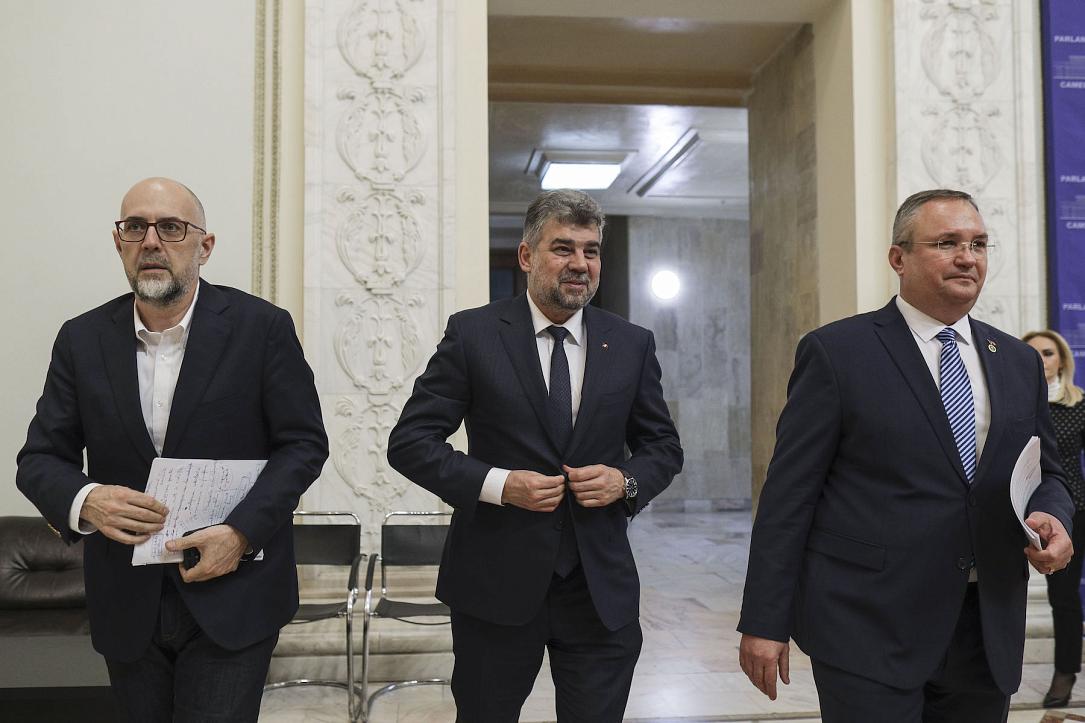Romania’s ruling coalition agrees on several changes to the tax code, including hiked taxes for gambling gains



The three parties that make up Romania’s ruling coalition – Social Democrats (PSD), Liberals (PNL) and Hungarians (UDMR) – have agreed on several changes to the tax code that will be implemented starting January 1, 2023. However, there’s no consensus yet on the so-called “solidarity tax” on companies with a turnover of over EUR 100 million.
Among the changes agreed upon by all the three ruling parties are a 40% tax rate on the gains from gambling, higher taxation for liberal professions and individual businesses (PFA), and a lower threshold for SMEs that benefit from the revenue taxation rather than profit taxation, according to sources within the ruling coalition quoted by Europa Libera.
The excise on cigarettes will also increase starting July 1, 2022.
Starting January 2023, the tax rate on gains from gambling or lottery will increase to 40%. Currently, the tax rate on these gains is 1% up to RON 66,750 (EUR 13,500), 16% up to RON 445,000 (EUR 89,900), and 25% above this threshold. The proposal to increase this tax came from the Liberals, who argued that many Romanian households are negatively impacted by gambling activities.
The coalition parties also agreed to lower the turnover threshold for microenterprises from EUR 1 million to EUR 500,000. This means that only the companies with turnover under EUR 500,000 will continue to pay tax on revenues (1% for those that also have employees and 3% for those with no employees). The companies with a turnover above this threshold pay tax on profit (16% rate). The coalition also discusses limiting the activities for which the micro-enterprise status applies and removing management or brokerage from the list of CAEN codes that microenterprises can have.
Other changes target the way individual businesses (PFA) and liberal professions are taxed, the goal being to increase the taxes collected from these categories of revenues by applying different taxation thresholds.
However, the ruling parties still haven’t reached a consensus on the “solidarity tax” that would apply to the turnover of big companies. The measure is promoted by the Social Democrats but opposed by the Liberals. Other topics that remain in limbo are the taxation of the so-called special pensions, namely pensions not linked to contributions, which apply to specific professions such as military, law enforcement, magistrates and former lawmakers, and the extra taxation of high salaries in the public sector.
The Social Democratic Party (PSD) also presented some of its proposals for the tax reform, on June 16. The proposals target differentiated taxation of individual incomes based on their level (progressive taxation). According to PSD, salaries under RON 4,500 should benefit from progressive deductions and the income tax for the minimum wage should be 0%.
At the same time, PSD proposes an extra tax of 40% for salaries in the public sector that are higher than the president’s salary. Special pensions should also be taxed extra, according to PSD (with a 40% tax rate for amounts of over RON 9,000 per month and 90% for those above RON 18,000 per month).
As for the “solidarity tax”, the Social Democrats propose that companies with a yearly turnover of over EUR 100 mln should pay a contribution of 0.5% of their sales to support the public healthcare and education system. This contribution would be temporary for a period of two years, according to Digi24.ro.
editor@romania-insider.com
(Photo source: Inquam Photos / Octav Ganea)